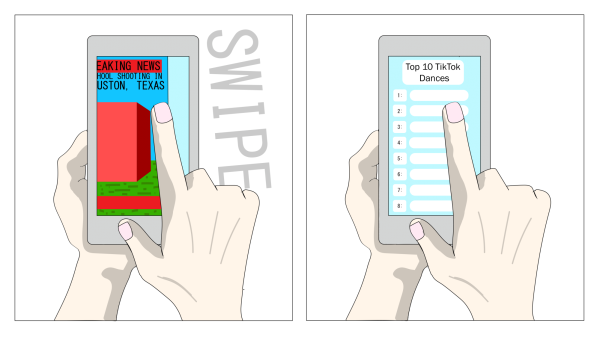Fired Up: Remember Siamak Namazi
photo by Caitlyn Hale
Fired Up is a monthly column by Lifestyles Editor Sophia Canabal.
In 2016, the U.S. government negotiated the release of four wrongfully detained Americans from Iranian prisons, but one man was left behind. Seven years later, Siamak Namazi is pleading with president Joe Biden for his release, pledging to a week-long hunger strike in hopes of catching his attention. In a letter to the president, Namazi wrote, “All I want, sir, is one minute of your days’ time for the next seven days devoted to thinking about the tribulations of the U.S. hostages in Iran.”
According to a study by the Legacy Foundation, 153 Americans have been wrongfully detained by foreign governments since 2001. What was first used as an intimidation tactic by terrorism groups is now an easy grab at political leverage. Although the U.S. attempts to negotiate their freedom, few have ended in success, and even fewer are released within a year of their arrest. While this is true for Namazi, whose case has received little attention since 2016, there are notable exceptions.
On Dec. 8, nine months after her detainment, NBA star Brittney Griner was released from Russia in a prisoner swap involving a Russian arms dealer, but while the White House celebrated her return, Paul Whelan, a U.S. Marine who was detained in Russia in June 2020, remained imprisoned. The biggest difference between Whelan’s case and Griner’s is that Griner’s received nationwide pressure from her fans, while Whelan’s did not. When America rallied behind Griner, the White House sacrificed an arms dealer, but Whelan remained in Russia.
Griner was released less than a year after her detainment, while this marks Whelan’s fourth year in prison. Griner’s case revealed that it is possible to set detainees free quickly, yet her release is the only instance in which that actually happened. But while it is clear that the public’s resolve can drive a speedy negotiation, is it the culprit of Whelan’s prolonged imprisonment?
The U.S. government’s failure to negotiate Paul Whelan’s release during Griner’s prison swaps shows that it is time to speak up about his freedom. While the U.S. government is limited by political interests, economic sanctions and regulations, private organizations are not, and are therefore more successful. For example, former New Mexican governor Bill Richardson, who founded the Richardson Center, has negotiated the release of multiple wrongfully detained Americans, including returning journalist Paul Salopek from Sudan.
While the U.S. government does care about Namazi and Whelan, they are also tied to the nation’s own political interests, limiting how much they can exchange for their release. In contrast, third-party negotiators like Richardson are sometimes more successful as their only priority is getting the detainee home safely. While private organizations are able to do what the government can’t, Americans need to remember that they will only get involved if the public vocalizes their concerns.
If Namazi starves himself in a hunger strike, it is to attract the attention of every American, not just the president. If Whelan’s family advocates for his release, it is in hopes that the nation will care as much about his freedom as they did for Griner’s. And whether national attention inspires the U.S. government to take action or a private organization to step up, it is vital to return them home.
Your donation will support the student journalists of Hagerty High School. We are an ad-free publication, and your contribution helps us publish six issues of the BluePrint and cover our annual website hosting costs. Thank you so much!












